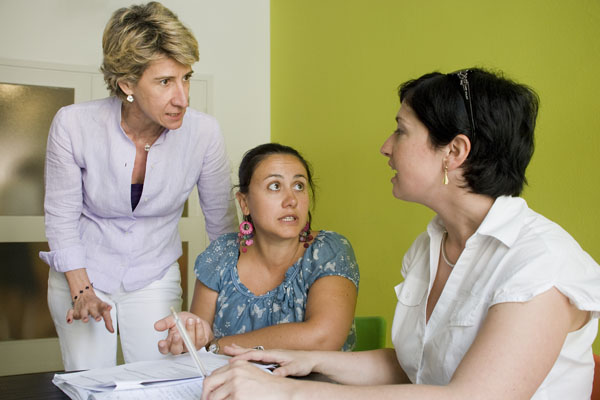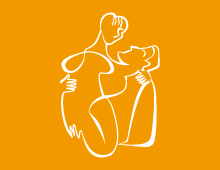 Training characteristics
Training characteristics
PSYCHOPATHOLOGY
Through an exploration of client psychopathologies and a reconstruction of the relational contexts in which they develop, our aim is to train therapists to offer a range of treatments designed for specific psychopathologies. In particular, the school has developed specific competence in the treatment of four psychopathologies: eating disorders, phobias, obsessive-compulsive disorders and depression.
TREATMENTS: INDIVIDUAL, FAMILY, COUPLE and "MIXED"
Treatment of the family and the couple emblematically expresses some basic assumptions about the systemic tradition: our therapeutic approach does not identify itself exclusively with family therapy. Who to involve in the psychotherapy (the whole family, one of its sub-systems, a single individual) is a technical matter arising during consultation and needs to be dealt with at the consultation stage which precedes the treatment proper. It is for this reason that our course offers training in the three main areas of psychotherapy: the individual, the couple, the family. The course also provides tools for conducting "alternate treatments", for example, an individual itinerary could include a working phase with the family, during family therapy a deeper phase may be introduced for an individual member or alternatively in the case of a couple a working phase with their children may be added.
EXPLORING THE STUDENT'S FAMILY HISTORY AND THE RELATIONSHIP MODELS WITHIN
Training includes the exploration of the student's family history: that is, the student's position within his or her relational context and the consequent interpersonal style he or she has developed. The objective here is to provide tools for understanding how his or her narrative and personal style interacts with the patient's narrative and problems. And to identify what resources and constraints come out of the student's history and what possible effects they could have on the therapeutic process at its various stages.
RESEARCH ON THE THERAPEUTIC PROCESS AND IT'S RESULTS
The aim of our course is to train psychotherapists and not researchers. However, in the second half of the course limited space has been made for clinical research using observation and controlled settings.The objective is to train therapists to be sensitive to the problem of evaluating psychotherapy treatments and to be able to adopt into their approach verification procedures as well as an appreciation for clinical research based on controlled procedures.
DIALOGUE WITH OTHER CLINICAL APPROACHES
We give importance to the practise of dialogue with other psychotherapeutic approaches and in particular with that of cognitive psychotherapy and psychoanalysis. The school does not have an eclectic orientation; rather it teaches a systemic approach that contains specific contributions from clinical cognitivism. There are, nonetheless, many occasions for comparison during supervision, when the same case is supervised simultaneously by a teacher from our school and a psychoanalyst or cognitivist colleague. The objective is to prepare systemic therapists who are able to enter into dialogue with colleagues from other approaches and to take part in debates involving the general fields of psychotherapy. The conviction here is that the various approaches should be seen as lines of research tradition as opposed to fixed rigid view points.
VISITING TEACHERS
We invite overseas visitors to teach courses and contribute to theoretical and clinical seminars. The decision to involve European and American colleagues arises from our awareness that the context in which we operate is ever more global. From the second part of the course onwards students should therefore be able to understand and use spoken English.
ACTIVE TEACHING
Active teaching will make the student a central player in their training course. The student is informed, year on year, of the training objectives he should reach. The aim is to put the student in a position to personally monitor their own training.
FROM PRACTICE TO THERORY
We offer a practical approach with concrete examples that precede a consideration of theory, where attention to clinical understanding, technique and therapeutic strategy invites students to reflect on underlying assumptions. From the beginning, practice, simulation, group and case work, clinical analysis of material, observation of sessions and practical experience in general all take precedence over the more traditional lessons. Negotiations are in course with foreign colleagues to accommodate students in training periods at other European psychotherapeutic institutes.





